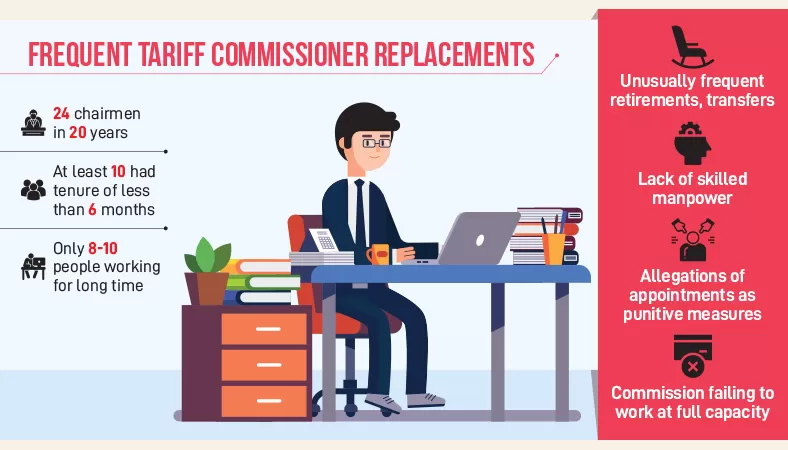With the aim of protecting domestic industries from unequal competition through the required rationalisation of the existing tariff structure in the country and across the region, Bangladesh Trade and Tariff Commission (BTTC) started its journey in 1992. It succeeded as the East Pakistan branch of the Pakistan Tariff Commission.
The country’s trade and commerce recorded multifold growth in domestic and global areas over decades since independence. The presence of global companies here as well as Bangladesh’s expansion in export markets have created an improved role for the commission to remain competitive with its counterparts.
But there is wide-ranging criticism of the role of the Bangladesh Trade and Tariff Commission in protecting local industries from the aggression of multinational companies as well as providing policy support to gain from trade partners on the eve of graduating to a developing country by 2026.
Even after five decades after its inception in 1973, the commission is yet to prepare a national tariff policy, which has already been drafted and is a must for protecting domestic industries as well as consumers.
Frequent changes in the policy and the short-term stay of its chairmen, which became a game of musical chairs, have largely been blamed for the commission’s failure in carrying out its proper duties.
As per the available data, the commission has seen 24 chairmen in the last 20 years, with only two chairmen serving for more than two years. Most of them lasted only two to six months.
Commission’s duties and responsibilities
The commission has three divisions – trade policy, trade remedies, and international co-operation.
The BTTC recently came under the spotlight by fixing the prices of many essential commodities amid rising inflation and economic volatility. But its work ranges far and wide.
According to the tariff commission act, it is responsible for protecting the genuine interests of local industries, promoting competition in the production of industrial products; ensuring the efficient use of industrial resources; increasing exports of domestic products; improving the use of domestic industrial resources at home and abroad by means of bilateral, regional, and multilateral trade agreements, and preventing unfair trade to protect genuine interests of domestic industries.
Besides, taking into consideration the existing tariff and tax structures in Bangladesh and other South Asian countries, trade policy, global perspectives, consumer interests, demand and supply of products, production costs, and productivity, the commission determines the level of assistance needed to protect justified interests of domestic industries through the required rationalisation of the existing tariff structure.
What it did in a year
Several officials said the commission has many responsibilities but it cannot carry out all of those. Its main task now is to perform the daily tasks assigned to it by the commerce ministry. Besides, it gives opinions on what type of trade facilities Bangladeshi delegations can discuss during their visits to different countries.
The commission also analyses trade agreements before those are signed with different countries. It evaluates and re-evaluates tariff rates responding to applications submitted by local entrepreneurs.
Since the coronavirus pandemic, it has also been analysing market demand and determining the prices of various products, including oil and sugar, due to the commodity market’s instability.
An analysis of the work done in the last financial year shows the Trade Remedies Division worked on nine matters, including holding an awareness seminar on anti-dumping, countervailing, and safeguard measures; investigating the sunset review done by India on imported jute products from Bangladesh; and giving opinions on imposing Tk 2 in VAT instead of Tk 6 on rayon and synthetic yarn.
The Trade Policy Division gave recommendations in 14-15 matters, including duties to be added to the budget responding to the applications submitted by local industrial entrepreneurs, reducing duties imposed on importing bags used as pesticide alternatives for packaging mango and other fruits, allowing the imports of passenger cruise ships that are over 25 years old, and protecting the local conveyor belt manufacturing industry. It has also fixed the prices of sugar and edible oil occasionally.
The International Co-Operation Division worked on 41-42 matters in a year, including preparing the feasibility study report on including Bangladesh in the Regional Comprehensive Economic Partnership Agreement; sending inputs for inter-ministerial meetings on foreign visits of various ministers and state ministers; doing feasibility studies of bilateral agreements with various countries, including Singapore, Sri Lanka, and China; and preparing reports on Bangladesh’s benefits under the South Asian Free Trade Area (SAFTA) and the ASEAN Free Trade Area (AFTA) agreements.
Why it failed to perform duties
“When I was appointed the chairman in 2002, I did not know how complicated and technical the commission’s work is. It took me six months to get an understanding,” said Professor MA Taslim, who served from 2002 to 2004.
Taslim during his tenure filed a complaint with the World Trade Organisation (WTO) regarding an anti-dumping measure taken by India.
According to him, he could do it alongside his regular work because he had an understanding of it. He also feels the tariff commission has the potential to contribute much more to the country’s trade if it is prioritised.
“The commission could have played a stronger role in the country’s trade if it had been made a real research body. But that kind of manpower was never there. Many of those who have been appointed chairmen do not have that much expertise in business matters. At times, the commission was even used as a place of punitive transfers,” he said.
The professor said Bangladesh will lose a lot of trade benefits after the least developed country (LDC) graduation.
“We have five to six years left before graduation. The role of a body like the tariff commission is important to understand the impacts on trade when preferential treatment will no longer be available,” he said.
Officials said the commission still does not have its own database, although that is essential for data analysis. Importers have not yet been encouraged to file written complaints against dumping. Due to a lack of proper training, the commission’s work speed is very slow.
10 chairmen served for 1-6 months
According to data, out of the 24 chairmen who served the commission, 20 went into retirement while others were transferred after a short tenure.
Among the chairmen, the longest-serving was Dr Md Mozibur Rahman. He headed the commission from 2009 to 2012. Prof Taslim stands to be the second longest-serving chairman with a two-year tenure.
At least 10 chairmen lasted for a range of one to six months. The remaining 12 served between seven and 23 months.
Commerce Secretary Tapan Kanti Ghosh served the commission for seven months before he was transferred to the liberation war affairs ministry.
Admitting that the frequent changes of officials are hampering the commission’s work, the commerce secretary said, “We too want the chairman to work for a long period as most of the work there is highly technical, which takes time to understand.
“However, the commerce ministry has no role in this as officials are appointed by the public administration ministry.”
The chairman before him, Md Noor-ur-Rahman, served for only two months and 12 days before he was transferred to the Posts and Telecommunications Division. Jyotirmoy Dutta, who was the chairman before Noor, served for nine months before going into
retirement.
The current chairman, Mahfuza Akhter, who joined the commission on May 19 last year, is set to retire next month.
Officials and experts blame the authorities for their negligence that results in inconsistencies in appointing and transferring the commission’s chairman. The change is common for mid-level officials as well, ultimately forcing the statutory body to work with mostly newcomers.
The Business Post made multiple attempts to reach the top public administration ministry officials, including the minister, for comments in this regard. But they did not respond till the filing of this report.
Only 10 long-serving employees
Officials at the commission said the trend of changing officials is prevalent at both high and medium levels.
Due to the shortage of skilled workers, the burden of work is falling on long-serving employees, they complained, adding that this is slowing down work.
According to officials, out of the total 11 employees at present, around 10 are long-serving.
The lack of manpower is holding back the commission from fulfilling its duties. It took decades for it to prepare a much-needed national tariff policy, which is expected to come into effect next year.
However, it has failed to initiate projects on market research while little research has been done on domestic product pricing. It has only filed one case against anti-dumping duties while little progress has been made in dispute settlements.
Besides, there is insufficient research on the impacts the country’s trade will face after the LDC graduation, although analysts have warned time and again that business expenditure will increase then.
Officials also said almost half the recommendations made by the commission regarding commodity prices and duties have not been implemented.
Md Mamun-ur-Rashid Askari, who has been working at the commission for 15 years and is currently the joint chief, said the work of the commission is so technical that no one from outside will suddenly understand it. “It will take a long time for them to get hold of their responsibilities.”
He said it is out of the commission’s jurisdiction to determine how long an official will work there.
It is up to the public administration ministry to decide who will be appointed there or transferred elsewhere or go into retirement, he said.
“The tariff commission has been neglected by the authorities for long. The current commerce secretary is a former chairman of the commission. Hopefully, the issues will be resolved slowly. Work is already going on to that end,” he added.














